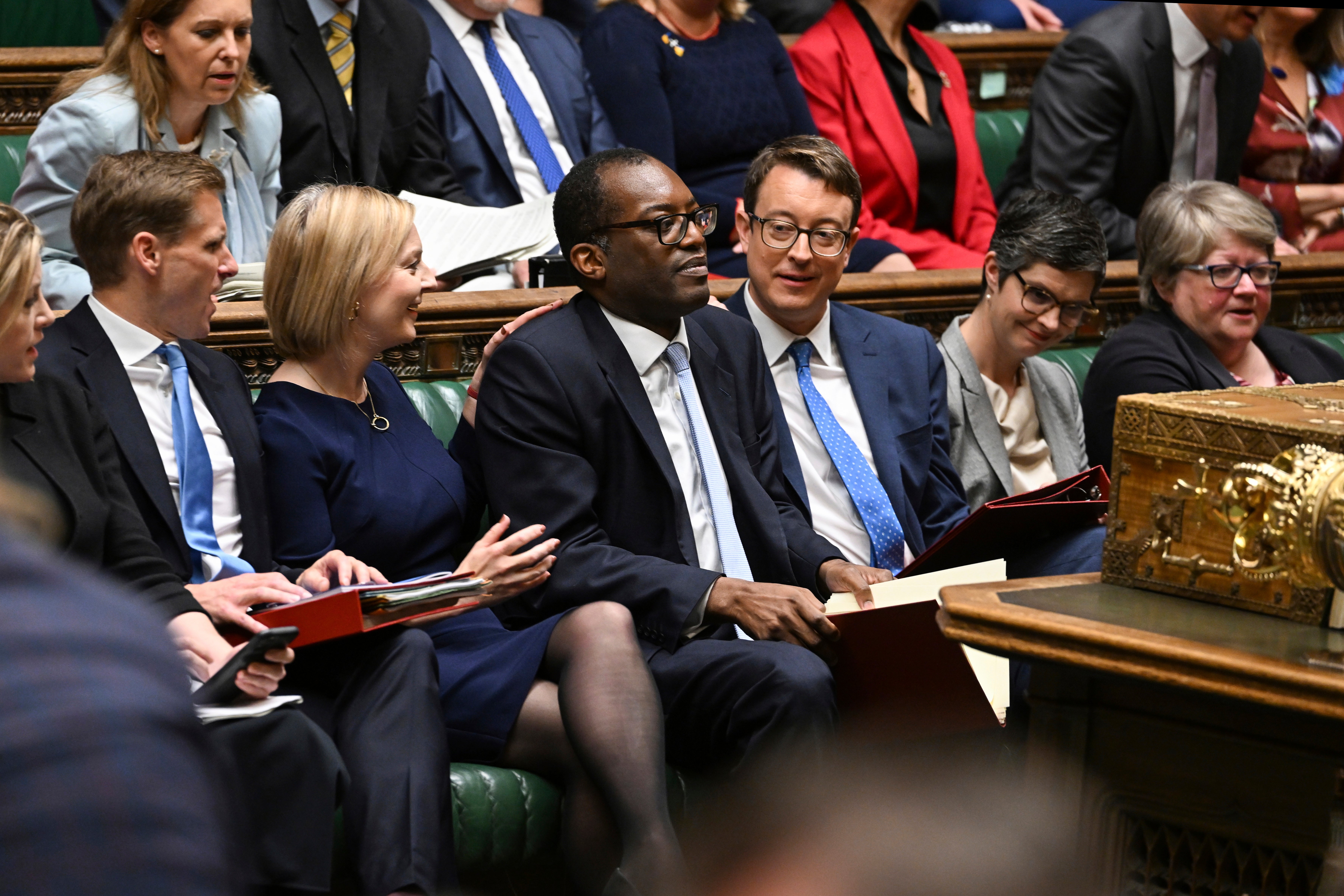Our chancellor displays a shocking naivety when it comes to handling finances
What the debacle amounts to is a new government anxious to strike out, to put down a marker, to show they’re different, thinks Chris Blackhurst


So, Kwasi Kwarteng was warned. I have it on the highest, unimpeachable authority that the chancellor was told ahead of his tax-cutting measures that the markets would react badly.
Kwarteng apparently did not care, saying he was relaxed about the response. It’s bizarre, doesn’t make sense: a chancellor who apparently believes he is somehow impervious, on a mission, and hang the opposition.
What’s perplexing about the crazy, lurching ride he took his country on is that it was all completely unnecessary. The City had factored in the reduction in corporation tax and non-imposition of the planned national insurance increase ahead of their confirmation. They were sound measures, good for growth, to be welcomed by business – a sign of rapprochement after the Boris Johnson reign between Downing Street and industry.
That indeed is how the two reforms were greeted, with loud approval by the CBI and the other trade organisations. Britain at last had a government that understood enterprise, that appeared to be on the same wavelength as the private sector.
Oh dear. For reasons that are entirely baffling, the chancellor threw some extra spice into the mix: he slashed stamp duty, abolished high-rate income tax and cut the basic rate.
Along with the lifting of the cap on bankers’ bonuses, again a step for which there was absolutely no imperative, together this signalled an administration that was intent on favouring the rich over poor, that was so fixated on achieving its objectives that questions as to how these changes were to be funded did not seem to matter.
Not surprisingly, investors took fright. Their fear was compounded when Kwarteng gave an interview saying more tax slashing was on the way. It was foolish.
The financial community hates uncertainty. The idea that traders thrive on it and that therefore the prospect of volatility makes them deliriously happy is nonsense. It’s true, there are some who are desperate for wild swings, but they are few. The bulk is seeking steadiness – the idea of a roller-coaster ride causes queasiness, they desire a calm journey, one that can afford clear sight of the destination.
Those who rely on the sharp climbs and falls for their living are playing a dangerous, and often ultimately unsustainable game.
The result was shock and nervousness. It was not how an economy like Britain’s was expected to behave, more akin to an emerging, developing country than an established, usually rock-steady G7 member
By doing what he did – and Liz Truss seems not to have been heavily engaged with the detail, being instead immersed in the mourning for the Queen – Kwarteng said there was a major gambler in town, a “whale” to use Las Vegas casino parlance, who was looking to make big plays, and was oblivious to the prospect of hefty losses.
In focusing on those at the top-end, income-wise, he was gifting Labour, suggesting too that this regime was playing fast and loose with the chances of a Tory general election defeat. Nothing is more guaranteed to give the Tory-backing City the heebie-jeebies than the probability of a Labour prime minister.
They were relatively relaxed about the lack of certainty as to how the corporation tax reduction and non-national insurance rise would be paid for – the absence of funding was trailed well in advance.
Kwarteng went further, however, unveiling steps that would cost £45bn, not £30bn, signalling a determination to follow ideology and all delivered with seeming insouciance. The verdict of the independent Office for Budget Responsibility could have made a difference but it was not forthcoming.
The result was shock and nervousness. It was not how an economy like Britain’s was expected to behave, more akin to an emerging, developing country than an established, usually rock-steady G7 member.
Puzzling as well was the insistence that this was somehow predicated on a wish to nurture economic growth. The lower corporation tax and ending of the national insurance increase, maybe, but not the ending top-rate income tax and cuts to stamp duty, and the ditching of the limit on bankers’ bonuses. Sure, they would tell the rest of the world that the UK was more amenable to high-rollers, but the overall benefit would be, at best, marginal.
What they pointed to was a belief in trickle-down economics, something that only carries support among the most wealthy and their hangers-on.
The stupidity was that if the chancellor had bided his time, and trimmed corporation tax and cancelled the national insurance hike, and drip-fed the others in later, there would have been little fuss and definitely not the pandemonium that ensued.
The income tax moves, lowering the basic rate in particular, could have come in 2023, in the build-up to a general election. Likewise, the bankers’ bonuses could have been contained in the larger-scale, post-Brexit loosening of City regulation which is on its way – “Big Bang 2.0” as we’ve been encouraged to label the package.
What the debacle amounts to is a new government anxious to strike out, to put down a marker, to show they’re different and not subject to the existing economic orthodoxy of the requirement to balance the books, the Treasury thinking that has prevailed in their eyes, for too long.
What it is in practice is a new government that has displayed shocking naivety, delivered a blow to many households that were already having to deal with uncertainty and rising living costs, cast our national finances into a downward spiral and mortally damaged our international reputation for sobriety and care. At the very least, the country deserves a new chancellor.




Join our commenting forum
Join thought-provoking conversations, follow other Independent readers and see their replies
Comments